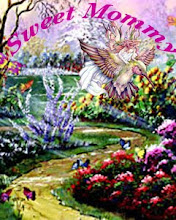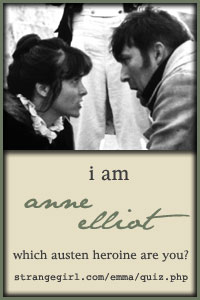
One of the most hallowed, lovely, and beautiful sights in our world is, a woman at home discharging in all the meekness of wisdom, the various duties of wife and mother, with an order that nothing is allowed to disturb; a patience which nothing can exhaust; an affection which is never ruffled; and a perseverance that no difficulties can interrupt, nor any disappointments arrest—in short, such a scene as that described by the writer of the most exquisite chapter of the Proverbs. Eve in Paradise, in all her untainted loveliness, by the side of Adam, propping the lily, training the vine, or directing the growth of the rose; shedding upon him, and receiving, reflected back from his noble countenance upon her happy spirit, such smiles as told in silent language, their perfect and mutual bliss, was no doubt, a brighter image of perfect virtue and undisturbed felicity; but to me, a woman in our fallen world, guiding in piety, intelligence, and all matronly and motherly excellences, the circle of a home made happy chiefly by her influence, presents a scene little inferior in beauty, and far superior as a display of virtue and intelligence, to that of which our first mother was the center even in her original perfections. And it is imagination, and not reason and moral taste, that can revel in the mind's pictures of Eve in Paradise, and not feel warmer admiration in the actual presence of such a woman as I have described.
But it will, perhaps, be asked, whether I would shut up every married woman within the domestic circle, and, with the jealousy and authority of an oriental despot, confine her to her own home; or whether I would condemn and degrade her to mere household drudgery. I have, I think, protected myself already from this imputation, by representing her as the companion, counselor, and comforter of man. She shall, with my consent, never sink from the side of man, to be trampled under his feet. She shall not have one ray of her glory extinguished, nor be deprived of a single honor that belongs to her sex; but to be the instructress of her children, the companion of her husband, and the queen partner of the domestic state, is no degradation—and she only is degraded who thinks so!
Christianity has provided a place for woman for which she is fitted, and in which she shines; but take her out of that place, and her luster pales and sheds a feeble and sickly ray! Or to change the metaphor, woman is a plant, which in its own greenhouse seclusion will put forth all its brilliant colors and all its sweet perfume; but remove it from the protection of its own floral home into the common garden and open field, where hardier flowers will grow and thrive—its beauty fades and its fragrance is diminished. Neither reason nor Christianity invites woman to the professor's chair, or conducts her to the lawyer's bar, or makes her welcome to the pulpit, or admits her to the place of the magistracy. Both exclude her, not indeed by positive and specific commands, but by general principles and spirit, alike from the violence and evil of the military, the debates of the senate, and the pleadings of the forum. And they bid her beware how she lays aside the delicacy of her sex, and listens to any doctrines which claim new rights for her, and becomes the dupe of those who have put themselves forward as her advocates only to gain notoriety, or perhaps unneeded income.

The Bible gives her her place of majesty and dignity in the domestic circle—the heart of her husband and the heart of her family. It is the female supremacy of that domain, where love, tenderness, refinement, thought and tender feeling preside. "It is the privilege of making her husband happy and honored, and her sons and daughters the ornaments of human society. It is the sphere of piety, prudence,diligence, in the domestic station, and a holy and devout life. It is the sphere that was occupied by Hannah, the mother of Samuel; by Elizabeth, the mother of John; by Eunice, the mother of Timothy; and by Mary, the mother of Jesus. It is the respect and esteem of mankind."
It is, as Dr. Spring has said, that silent, unobserved, unobtrusive influence, by which she accomplishes more for her race, than many whose names occupy a broad space on the page of history. A woman who fills well the sphere assigned to her, as a wife and mother; who trains up good citizens for the state, and good fathers and mothers of other families which are to spring from her own; and so from generation to generation in all but endless succession, need not complain that her sphere of action and her power of influence are too limited for female ambition to aspire to. The mothers of the wise and the good are the benefactresses of the human race.
What would be gained to woman's comfort, respectability, or usefulness, or to the welfare of society, and how much would be lost to each, by withdrawing her from her own appropriate sphere, and introducing her to that for which she has no adaptation? Who, but a few wild visionaries, and rash speculatists, and mistaken advocates of 'woman's rights', would take her from the home of her husband, of her children, and of her own heart—to wear out her strength, consume her time, and destroy her feminine excellence—in committee-rooms, on platforms, in mechanics shop, or philosophical institutions?
But may not woman, in every way in her power—benefit society by her talents and her influence? Certainly, in every legitimate way. Her sphere is clearly assigned to her by God—and only by very special and obvious calls should she be induced to leave it. Whatever breaks down the modest reserve, the domestic virtues, the persuasive gentleness, of woman, is an injury done to the community. Woman can be spared from the lecturer's chair, the platform of general convocation, and the scene of public business; but she cannot be spared from the hearth of her husband, and the circle of her children! Substitutes can be found for her in the one, but not in the other. In the bosom of domestic privacy she fulfills with truest dignity and faithfulness the first and highest obligations of her sex.
~from FEMALE PIETY, written in 1852 by John Angell James (1785-1859)










0 comments:
Post a Comment